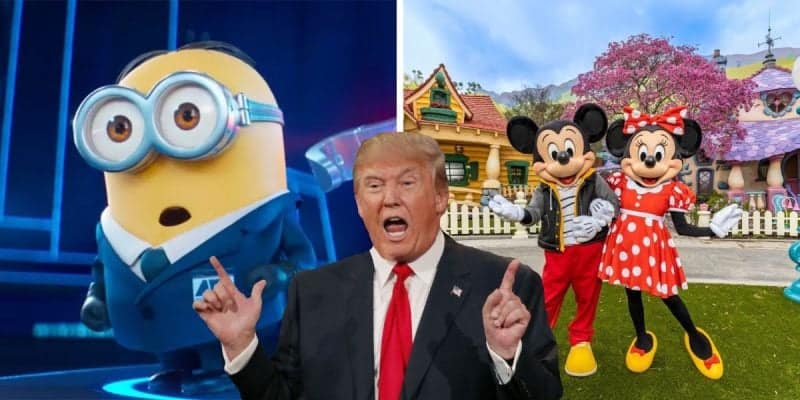After “Liberation Day” in early April, the Trump Administration dramatically reduced tariffs for most nations, except China. The United States currently has a tariff of 145 percent on some goods coming into the country from China.

These tariffs have adversely impacted The Walt Disney Company and Comcast, the parent company of Universal Studios. A majority of the products both companies sell at their theme parks and stores are made in China, forcing both companies to raise prices dramatically. With increased prices, consumers could potentially buy fewer products.
However, Disney and Universal have found a way around tariffs to keep the Chinese market open for one of their biggest businesses: films. Despite China’s pledge to “moderately reduce” imported films from America, Disney and Universal have managed to get major blockbusters released in the country.

Since the pandemic, China has relied less on international films and instead funded a bustling domestic industry. However, China has found its relationship with Disney and Universal to be mutually beneficial.
China accounts for 40 percent of the international film market, a slice that Disney and Universal desperately need after some disappointing box office returns. For its part, China needs American blockbusters to attract people to its theaters and malls and encourage them to make larger purchases.
Disney has secured the release of the live-action Lilo and Stitch (2025), Marvel’s Thunderbolts (2025) in China, and Universal’s Minecraft Movie (2025), which is currently playing in China. However, Disney and Universal could face roadblocks in future releases.

On April 10, China announced it was instituting retaliatory tariffs against American imports and would reconsider future movie releases. All of the previously mentioned films were approved before April 10.
Disney is still hoping for Chinese releases for Tron: Ares (2025), Zootopia 2 (2025), and Avatar: Fire and Ash (2025). The Avatar film is significant to Disney, given that the first two films have grossed more than $450 million in China.
Universal still awaits Chinese approval for M3GAN 2.0 (2025) and Jurassic World: Rebirth (2025).

A full ban on Disney films could cost the company $1 billion annually while costing Universal less, but it would still be a damaging blow to the company. China could also retaliate by cutting the profit-sharing margins for both companies. Currently, Disney and Universal receive 25 percent of box office revenues in China.
For now, Disney and Universal have skirted the geopolitical issues and tariffs to find a way to release their films in China’s lucrative market, but that could end at any moment.
